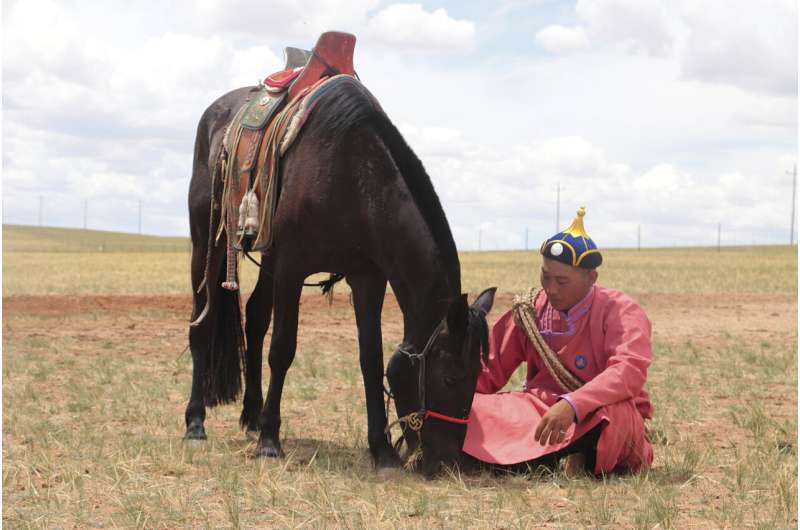Scientists have traced the origin of the modern horse to a lineage that emerged 4,200 years ago
JUNE 9, 2024
Editors' notes
by Christina Larson

A herder sits with his horse on an open plain in Inner Mongolia, China, July 2019. Scientists analyzed ancient horse genomes to calculate dates for the domestication of the modern horse -- 4,200 years ago, according to new research published Thursday, June 6, 2024, in the journal Nature. Credit: Ludovic Orlando/Centre for Anthropobiology and Genomics of Toulouse, CAGT via AP
Around 4,200 years ago, one particular lineage of horse quickly became dominant across Eurasia, suggesting that's when humans started to spread domesticated horses around the world, according to research published Thursday in the journal Nature.
There was something special about this horse: It had a genetic mutation that changed the shape of its back, likely making it easier to ride.
"In the past, you had many different lineages of horses," said Pablo Librado, an evolutionary biologist at the Spanish National Research Council in Barcelona and co-author of the new study. That genetic diversity was evident in ancient DNA samples the researchers analyzed from archaeological sites across Eurasia dating back to 50,000 years ago.
But their analysis of 475 ancient horse genomes showed a notable change around 4,200 years ago.
The horse transformed human history—and now scientists have a clearer idea of when humans began to transform the horse.
More:
https://phys.org/news/2024-06-scientists-modern-horse-lineage-emerged.html
